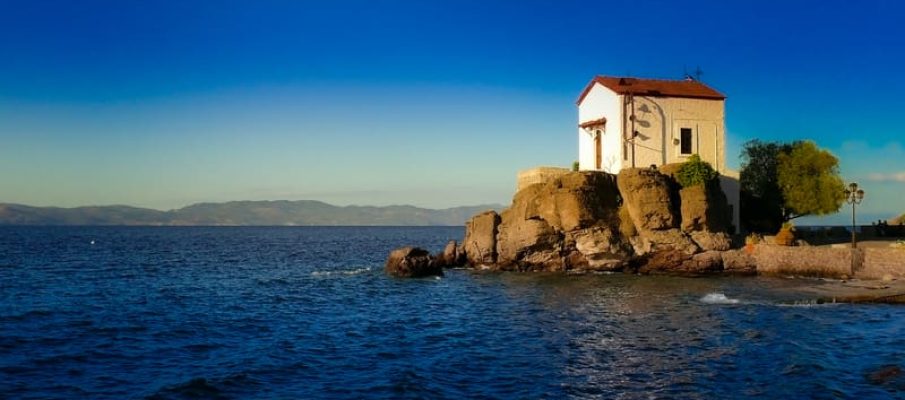There is nothing I like more than traveling — everything about it. I enjoy airplanes (even the food), strange hotels, languages I don’t understand, long airport layovers, and meeting people with different perspectives on life. I even like the smell of jet fuel!
Sometimes people talk about the difference between being a tourist and a traveler. I don’t want to be judgmental about this — I sometimes like to be a tourist. Last year, we opted to go to an all-inclusive resort in Mexico. We had a wonderful time playing in the pool and enjoying cool drinks when the sun went down. But we didn’t really interact much with the local community. We were definitely tourists.
We did something a little different this year. We decided to go to Lesvos, a wonderful Greek island in the northeastern Aegean just five miles across the sea from Turkey. We stayed in a family-run, locally-owned hotel, and ate our meals in little, out-of-the-way restaurants where most of the customers were Greek. Whenever we could, we explored the island, hoping to simply get lost and enjoying everything the island had to offer.
The Greek economic crisis was at its height, the banks closed for a week, and everyone talked to us passionately about their perspective on the crisis. We rented little scooters and explored villages so far off the beaten track that we were amazed that there were still villages in Europe so cut off from the real world. Lesvos was also facing another crisis. Every day, dozens of rafts arrived from Turkey filled with refugees from Syria, Afghanistan, and Pakistan. The village where we were staying was a little divided. In the true tradition of Greek hospitality, most people wanted to do everything they could to help these people who had given up their homes and jobs to find safety in Europe. But the huge numbers of refugees worried them. How much could they do when they were facing a terrible crisis themselves? Some people were less sympathetic, and wanted the government to take steps to protect their shores. We sympathized with the people who wanted to help, and we stocked up on food, water, and other provisions when we had our rental car to give to the refugees as they undertook their forty-mile walk to the island’s capital, Mytilene. We gave a ride to a wonderful Afghan woman and her daughter. This time we fitted into the traveler category.
I have lived in several countries, and it’s easy for me to be a traveler rather than a tourist, but I advise everyone to take small steps in this transition. If you do it, you will gain so much more insight into the countries you visit, and it will be easier to discover the truth of the saying that travel provides the only opportunity to spend money and become richer at the same time.
Here are a few tips that I believe can help enhance the travel experience:
- Do business in the community. It is sometimes amazing how people repair things in developing countries rather than replace them. I used to travel with an old pair of shoes in need of repair. In the countries I visited, I would find a cobbler to repair my shoes! (I have had shoes fixed in Iran, Indonesia, Peru, and Mexico!) If you don’t have a broken pair of shoes, try taking your laundry to a local business. It’s much cheaper than using the hotel laundry and a lot more fun!
- Learn just a few words of the language. You don’t have to be good, but you will find people will appreciate your efforts. They might even laugh at you — and laughter is a form of communication that seems to cross borders more seamlessly than anything else.
- Don’t worry too much about people overcharging you. On the whole, you won’t be cheated. But even if you are, it’s usually a question of only a small amount. Relax and enjoy the place rather than getting bent out of shape. (That said, be very careful about real theft. Sadly, pickpockets and petty thieves thrive in major tourist spots.)
- Make a point of observing. Avoid worrying about how things work better at home. Instead, make a point of noting things that seem to be done better in the places you visit. Write about them and tell your friends about them. This exercise really helps you to thrive when you travel. For example, many escalators in Europe have sensors on them. Instead of being active all day, they work only when someone steps on them. Not only does this save a lot of energy, but it also provides you with some amusement when you see a cross tourist taking the stairs, assuming the escalator isn’t working.
- Eat something you’ve never eaten before. You may love it; you may hate it. Either way, you’ll have a story to tell.
With these five tips, I can guarantee that you will make your experience a richer one — and you will become a traveler rather than just a tourist.







